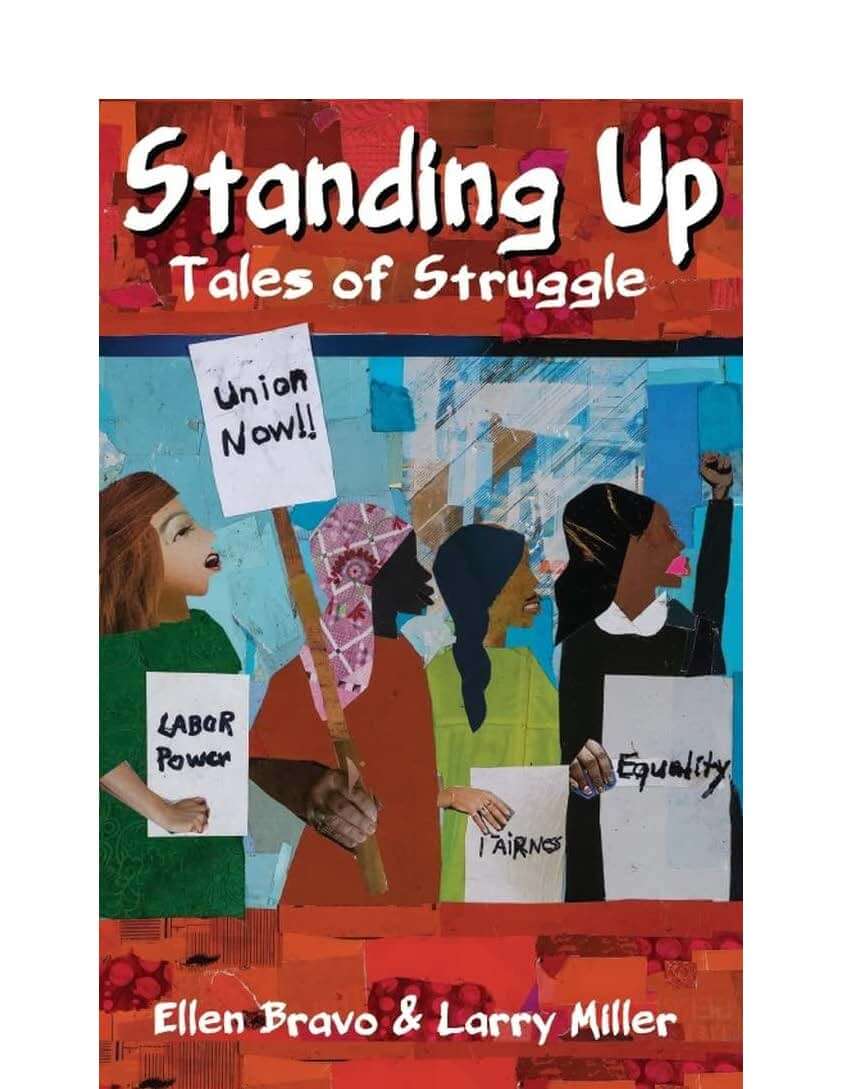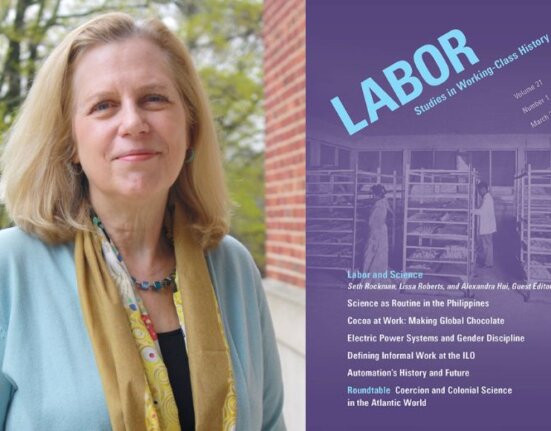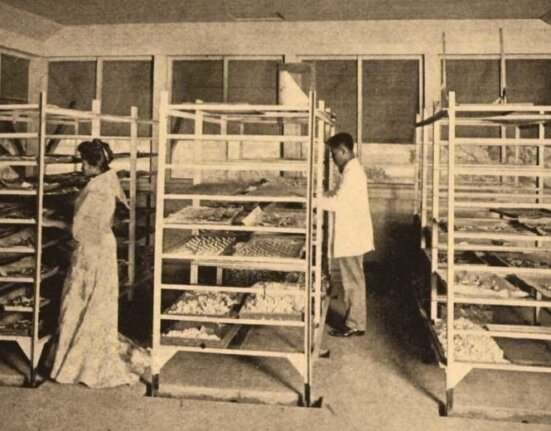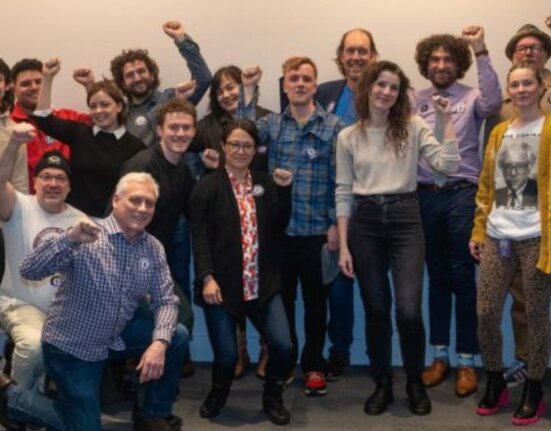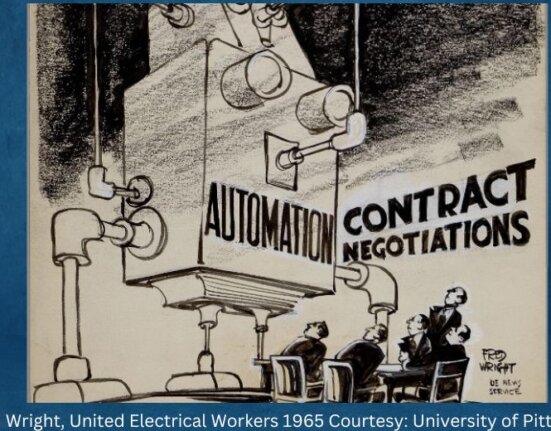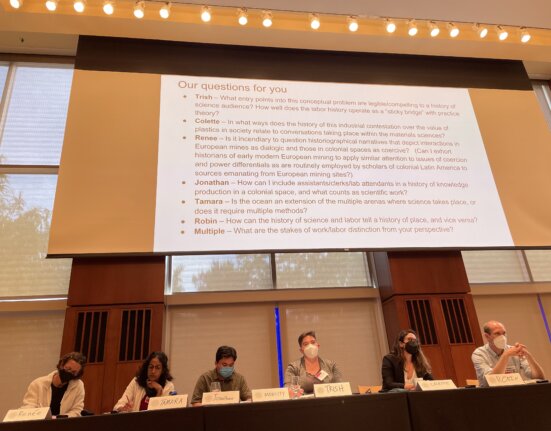Over five decades of organizing, we’ve seen the power of story to move people. We wanted to write about the workers Imbole Mbue calls “the deliberately unheard” – those who clean bloody hospital sheets, forge parts for sewer pipes, arrange flights or process checks, all while caring for kids, holding relationships together and wrestling with multiple forms of oppression. Above all, we wanted to capture the moments when people realize that exploitation is not inevitable and that we can change it if we act together. We decided to write a novel in stories and call it Standing Up: Tales of Struggle.
We’re proud of the response from a number of labor educators who hailed Standing Up as “a cookbook for activists” and “a gem of a playbook” for union organizers and members. Labor reporter Steve Greenhouse said reading it felt “as if Norma Rae or Studs Terkel had written a novel,…a roadmap for building a better and fairer America.”
It’s also a love story, about two characters, Nick and Sophie, whose lives and family are inspired by our own.
Slowing Down and Standing Up
The stories start in 1970 and go all the way to 2021. They range from a slowdown at the Grady Hospital laundry in Atlanta to a stand-up and union drive at a Milwaukee call center, a sexual harassment awareness training for Kansas City firefighters, and organizing at a company yoga class.
The book opens in the South, when a young Nick starts transporting laundry that contains a piece of human flesh. Like many workers today, the laundry crew have no safety equipment. Nick joins the union, gets some powerful lessons about how the bosses try to use racism to divide workers, and celebrates a victory with his co-workers. “The next day everyone quickly got to work. No one talked a lot as they performed their task, but every now and then you could hear whistling. It’s like everyone was a little lighter, Nick told [a friend] that night…. ‘That’s pride, man,’ [his friend] said. ‘Burns up so much less energy than rage.’”
Nick moves on to a job at Grinnell Steel, where the noise and air quality are horrific and the worst jobs go to men who had previously been incarcerated. Here Nick learns a few things about patience and trust.
After moving to Baltimore and getting a job in the coke ovens at Bethlehem Steel, Nick meets Sophie in the Dump Nixon Coalition. He doesn’t know feminist lingo or new dating culture, but his respect for women and love of kids wins Sophie’s heart. They marry, have two children and move to Milwaukee, where we see Sophie become an activist and then an organizer with a working women’s group that takes on a variety of corporate and public policy campaigns and supports workers to take action. As one worker puts it in Should Banks Care About Kids, “You don’t always win when you stand up for yourself, but you never win if you don’t.”
One recurring theme of the book is how racism and misogyny hurt everyone, impacting wages and working conditions but especially worker power. Standing Up also shows that change doesn’t come from the top down and that it works best when it’s done as part of a community. Natalie Monarrez, one of the worker activists at Amazon in Staten Island, told us she loved how our book mirrored the creativity and fierce determination she was part of in their successful union drive. “It’s an incredible book that workers will be inspired by,” she said.
Anat Shenker-Osorio, a leading expert on progressive messaging, joined us for the kickoff of Standing Up. “[I]n order to believe an action is worth taking,” she said, “people have to believe they have a shot at pulling it off. This book shows progressive ideas are not just popular, they’re actually possible.” And, she added, it will make you laugh.
We hope labor leaders around the country will incorporate Standing Up: Tales of Struggle in their curriculum. Here’s a link to a sample labor study guide.
Ellen Bravo and Larry Miller are long-time organizers living in Milwaukee. Ellen is the former director of 9to5 and a co-founder of Family Values @ Work. For many years Larry Miller worked was a factory worker and union activist; after a layoff he went to college, became a public school teacher and spent 12 years on the Milwaukee Public Schools Board.


